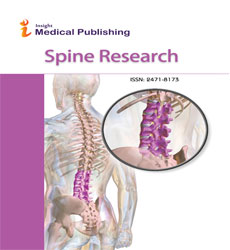Abstract
Assessment of mental health status of public of Pakistan during the corona virus
Background: The corona (COVID-19) pandemic has become threatened the people all around the world and has impacted the people psychologically. The research data is needed to formulate psychological interventions to lower the anxiety. The aim of the study was to assess the anxiety and stress levels among the general public of Karachi during COVID-pandemic. Method: From 2020/04/27 to 2020/05/06 we collected data through online survey. Online survey was first disseminated to university students and they were encouraged to pass to other. Mental health status was assessed by the Depression, Anxiety and Stress Scale (DASS-21). Results: This study included 281 respondents from Karachi. In total 37.91% of respondents reported sever to extremely severe anxiety symptoms and 23.13% reported severe to extremely severe stress symptoms. Majority of respondents were aware of heath information available, took precautionary measures, avoided going out, knew someone tested positive and spent 20 to 24 hours at home. Age and education were significantly associated with anxiety. Gender, profession, Awareness related to health information, satisfaction related to health information available, taking precautionary measures and COVID testing were not significantly related to anxiety. Conclusion: During the outbreak of corona pandemic, more than one-third respondents reported severe to extremely severe anxiety and more than one fifth reported severe to extremely severe stress. Majority of respondents were aware and satisfied with the corona virus pandemic, health available, took precautionary measures. Age and education were closely associated with anxiety. Very few were tested for COVID-19, reported poor health status and reported past or present physical symptoms. Our findings will help to formulate psychological interventions to improve the mental health of vulnerable groups and lower the psychological impact of the outbreak.
Author(s): Dua Ahmed Ali
Abstract | Full-Text | PDF
Share this

Google scholar citation report
Citations : 128
Spine Research received 128 citations as per google scholar report
Abstracted/Indexed in
- Google Scholar
- China National Knowledge Infrastructure (CNKI)
- Directory of Research Journal Indexing (DRJI)
- WorldCat
- International Committee of Medical Journal Editors (ICMJE)
- Secret Search Engine Labs
- Euro Pub
Open Access Journals
- Aquaculture & Veterinary Science
- Chemistry & Chemical Sciences
- Clinical Sciences
- Engineering
- General Science
- Genetics & Molecular Biology
- Health Care & Nursing
- Immunology & Microbiology
- Materials Science
- Mathematics & Physics
- Medical Sciences
- Neurology & Psychiatry
- Oncology & Cancer Science
- Pharmaceutical Sciences

